ABLE Program Uplifts Students for Decades
The Advanced Baccalaureate Learning Experience (ABLE) Program has been preparing alumni for success since 1986
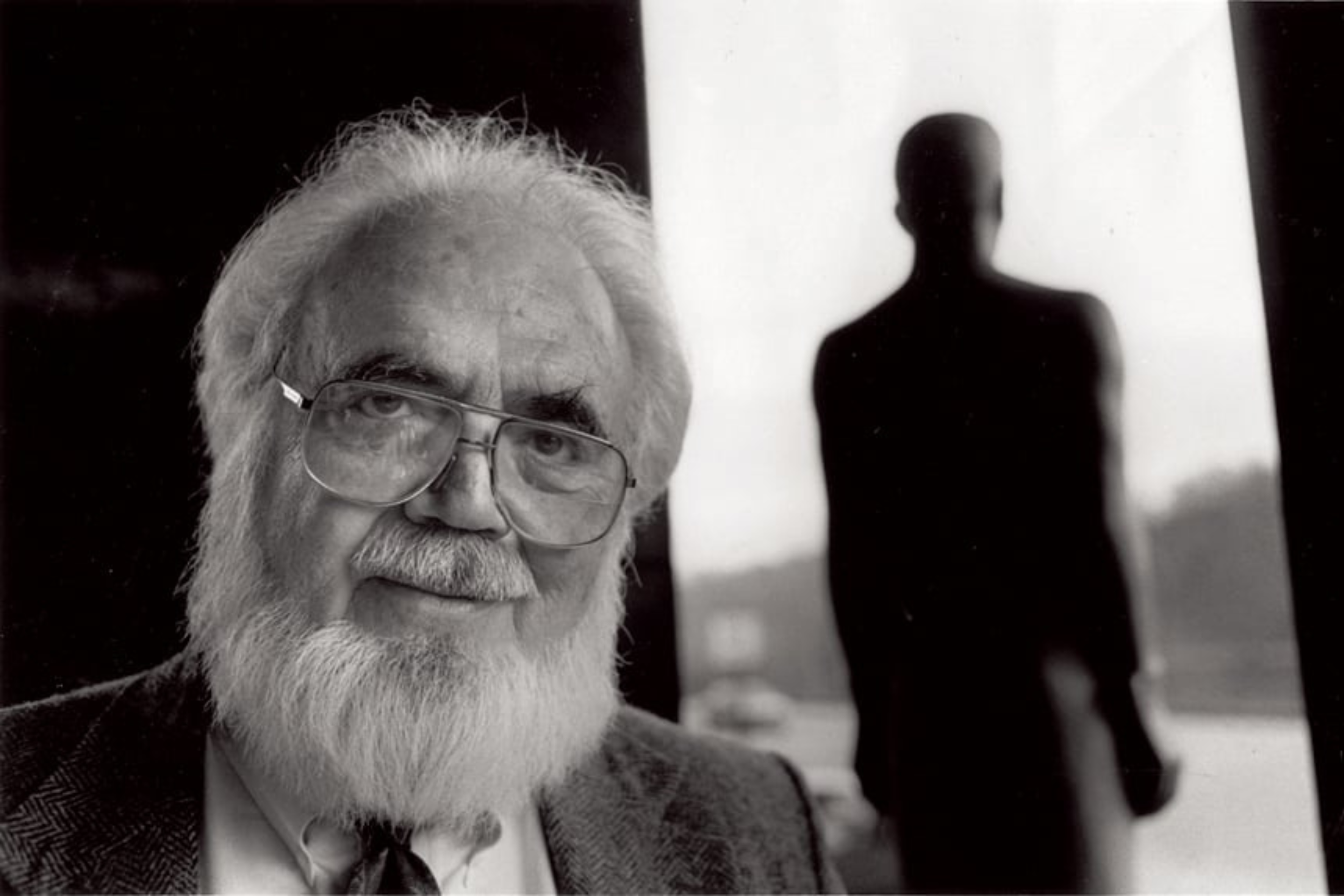
What began as a programmatic vision by a small group of dedicated college administrators and science faculty in the late 1980s has been launching hundreds of medical students’ careers at the Michigan State University College of Human Medicine for close to 40 years.
Formed during the tenure of Dean W. Donald Weston, the group explored innovative ways to align the student body with diverse communities across the state. Their idea was to grant a select group of disadvantaged students who are underrepresented in medicine an opportunity to enter medical school upon successful completion of the Advanced Baccalaureate Learning Experience Program (ABLE Program).
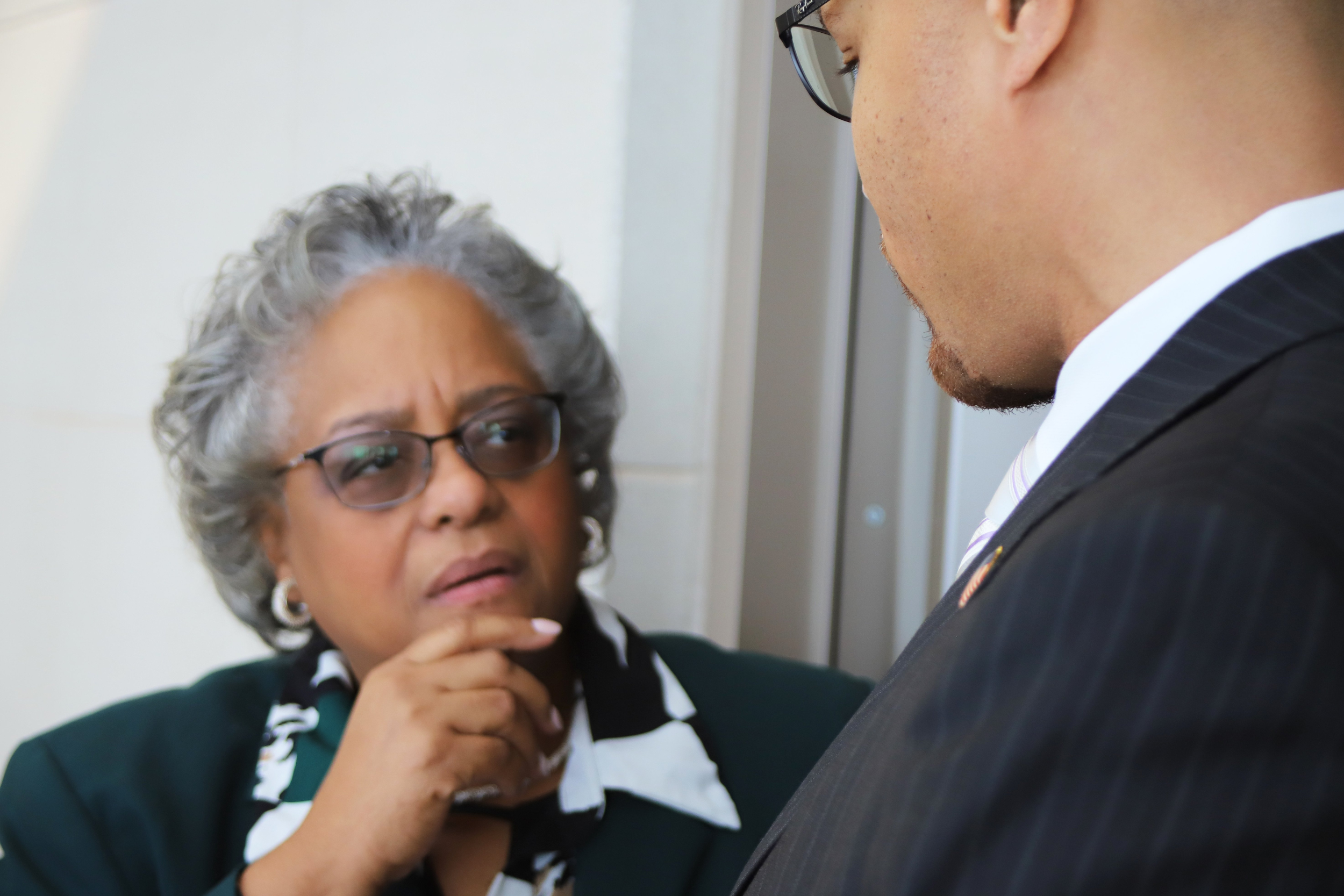
The ABLE Program became a reality after receiving approval by college faculty as an official path to medical school and accepted its first cohort in 1986. Senior Associate Dean for Diversity and Inclusion and the Associate Dean for Student Affairs Wanda Lipscomb, PhD, was part of the original planning group, and early on she secured Health Resources and Services Administration (HRSA) federal funding to offer stipends for ABLE students.
According to Lipscomb, founding and current director of the ABLE Program, the unique experiential program “does today exactly what the original committee intended it to do back then.”
“The ABLE Program evolved directly out of the college’s holistic admissions process and has been sustained by design,” Dr. Lipscomb added. “The program’s perfect alignment with our mission to serve all people gives students from nontraditional backgrounds an opportunity to really prove themselves.”
Each year, ten to twelve participants are accepted into the year-long program with the goal of building their science knowledge through high-level undergraduate science and medical school courses. Combined with individualized support, students develop effective learning strategies, participate in ABLE-specific activities, and intensive support from faculty and staff—all of which help to promote academic success. While students must successfully complete the requirements of the ABLE Program to be offered regular admission to the entering College of Human Medicine class the following year, participation doesn’t equal auto-acceptance.
Marsha Rappley, MD (‘84), who served as the college’s dean from 2006 to 2015, prioritized keeping ABLE going—even through the mid-1990s, when the HRSA federal funding support became unavailable.
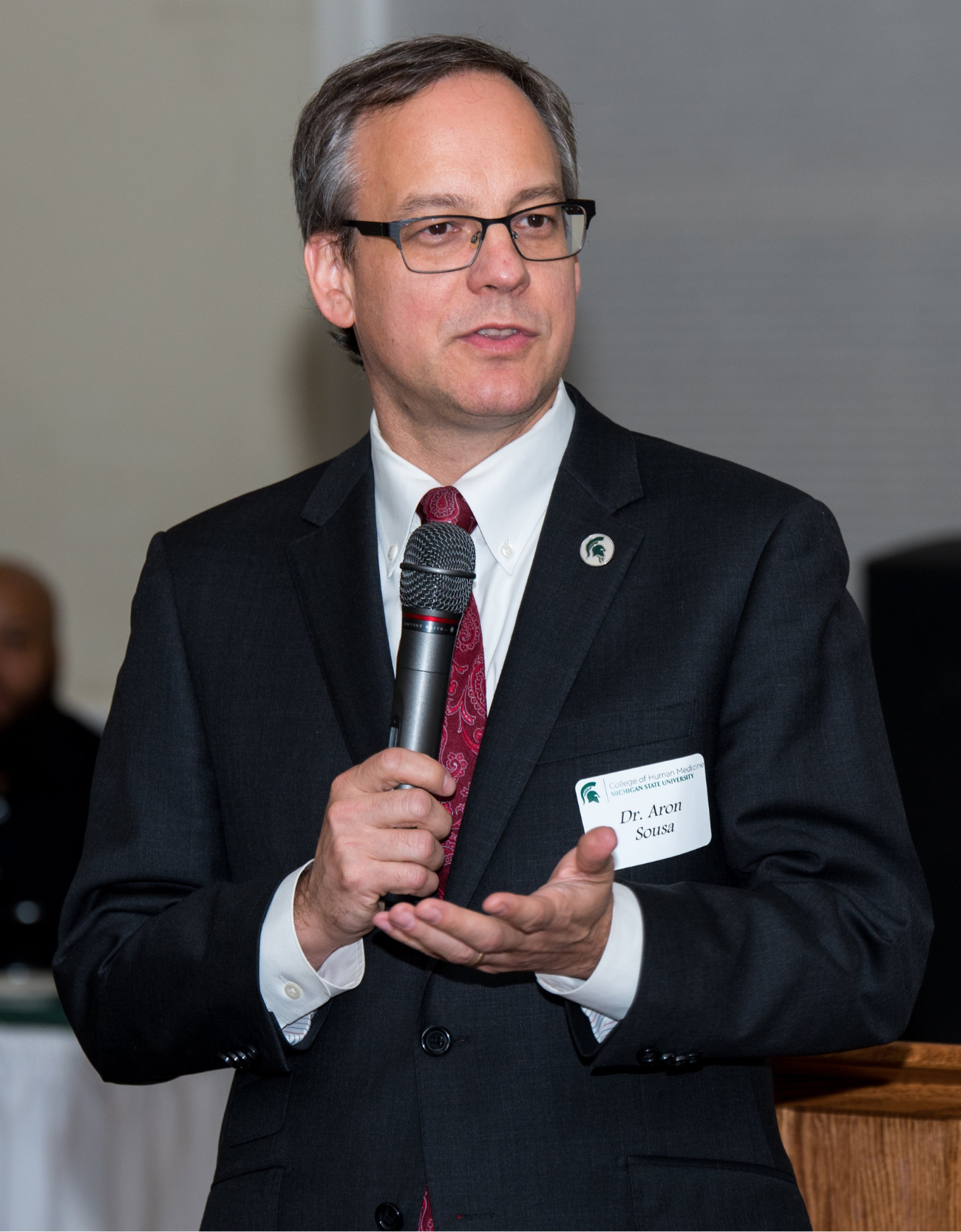 Current Dean Aron Sousa, who was senior associate dean during Rappley’s term and has championed the program, said “the ABLE program encapsulates the mission and good work of the college. It provides opportunity when there is little, it delivers on the astonishing potential of our students, and the impact of our graduates on communities and the profession is profound.”
Current Dean Aron Sousa, who was senior associate dean during Rappley’s term and has championed the program, said “the ABLE program encapsulates the mission and good work of the college. It provides opportunity when there is little, it delivers on the astonishing potential of our students, and the impact of our graduates on communities and the profession is profound.”
Long-time MSU faculty member and Professor Emeritus Kathryn Lovell, PhD, teaches the program’s neuroscience course.
“The ABLE students sometimes just need an initial extra step up to know the best way to study,” Lovell said. “It is very rewarding and stimulating working with these students, they are so dedicated to medicine and have such a desire to help their communities.”
In fact, because she so deeply believes in the promise each cohort holds, Lovell established a scholarship specifically for ABLE Program students.
Workforce development as an ethos
Across the state and country, in urban and rural communities, Spartan MDs are not only making a difference, but they are an unstoppable force for good. They are committed to the communities and families they serve, and are role models and mentors to those being called to medicine.
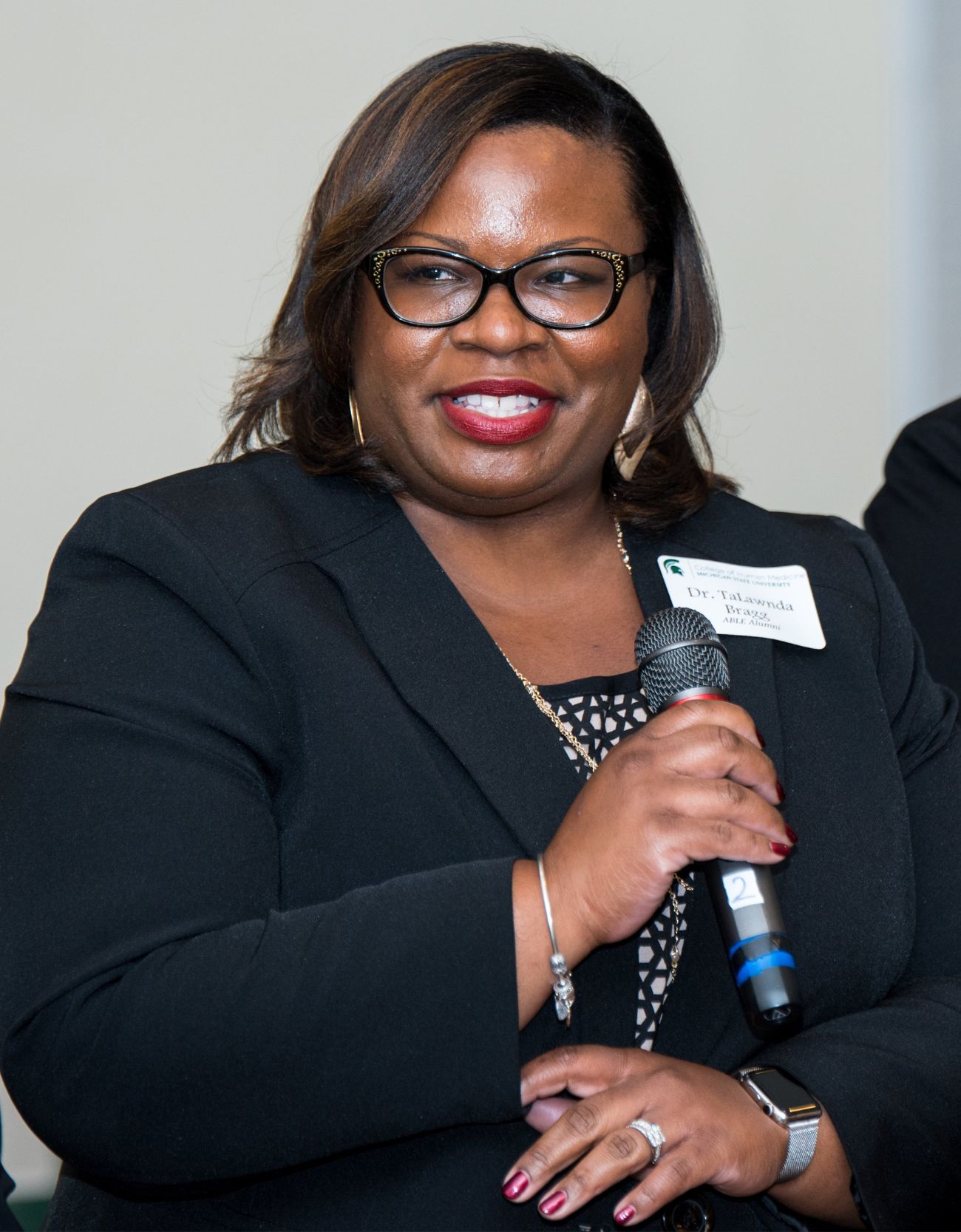 Graduates like TaLawnda Thompson-Bragg, MD (‘06), FACP, are a living testament to the ABLE Program’s effectiveness. She says the ABLE Program prepared her for a career as a physician in many ways, including in her role as director of Corewell Health’s Internal Medicine Residency Program in Grand Rapids, Mich.
Graduates like TaLawnda Thompson-Bragg, MD (‘06), FACP, are a living testament to the ABLE Program’s effectiveness. She says the ABLE Program prepared her for a career as a physician in many ways, including in her role as director of Corewell Health’s Internal Medicine Residency Program in Grand Rapids, Mich.
“ABLE helped me gain insight on how to help my residents be successful, and I learned the value of mentorship,” Thompson-Bragg said. “Not many things are more rewarding to me than mentoring medical students and residents, walking beside them on their journeys as a firsthand witness to their growth and development.”
Three alumni like Martin Romero, MD (’03), Brian Tesler, MD (’14) and Jamila Power, MD (’14), were ABLE program participants who have gone on to have successful careers in academic medicine—all three were considered nontraditional students with extensive life experience.
The ABLE cohort comes from wide and varied backgrounds, comprised of those typically lacking academic or financial resources, Power says.
“Especially through the pandemic, we’ve been more thoughtful about how we select people for medical school and how certain groups might not have the same advantages to arrive here," Power said. "It's generally a population of students with more barriers to success for any number of reasons, so having resources to be successful is absolutely critical."
Today, Power is the community assistant dean (CAD) in Lansing. “ABLE gives self-confidence, by giving students the tools and resources to help create the path to medicine—I wouldn’t be sitting here in the CAD office without ABLE,” Power added.
Romero is an assistant professor and chief of the John Dewey Learning Society, recently experiencing the “proudest achievement as a physician so far”, by being honored with the 2022 MCEP Emergency Physician of the Year. Tesler, a board-certified Ob/Gyn, is an assistant professor in the Department of Family Medicine and serves as faculty curriculum liaison for diversity and inclusion for LGBTQIA2S+ within the Office of the Associate Dean for Diversity and Inclusion.
"It’s about getting people into medicine who aren’t traditionally those the profession served in the beginning. We do this by representation and creating space for them in medicine by being who we are and being part of the process,” Tesler said. “For example, by being on the admissions committee and setting an example—as an openly gay faculty member, so people like me are represented—we’re going past pronouns by really focusing on intersectionality.”
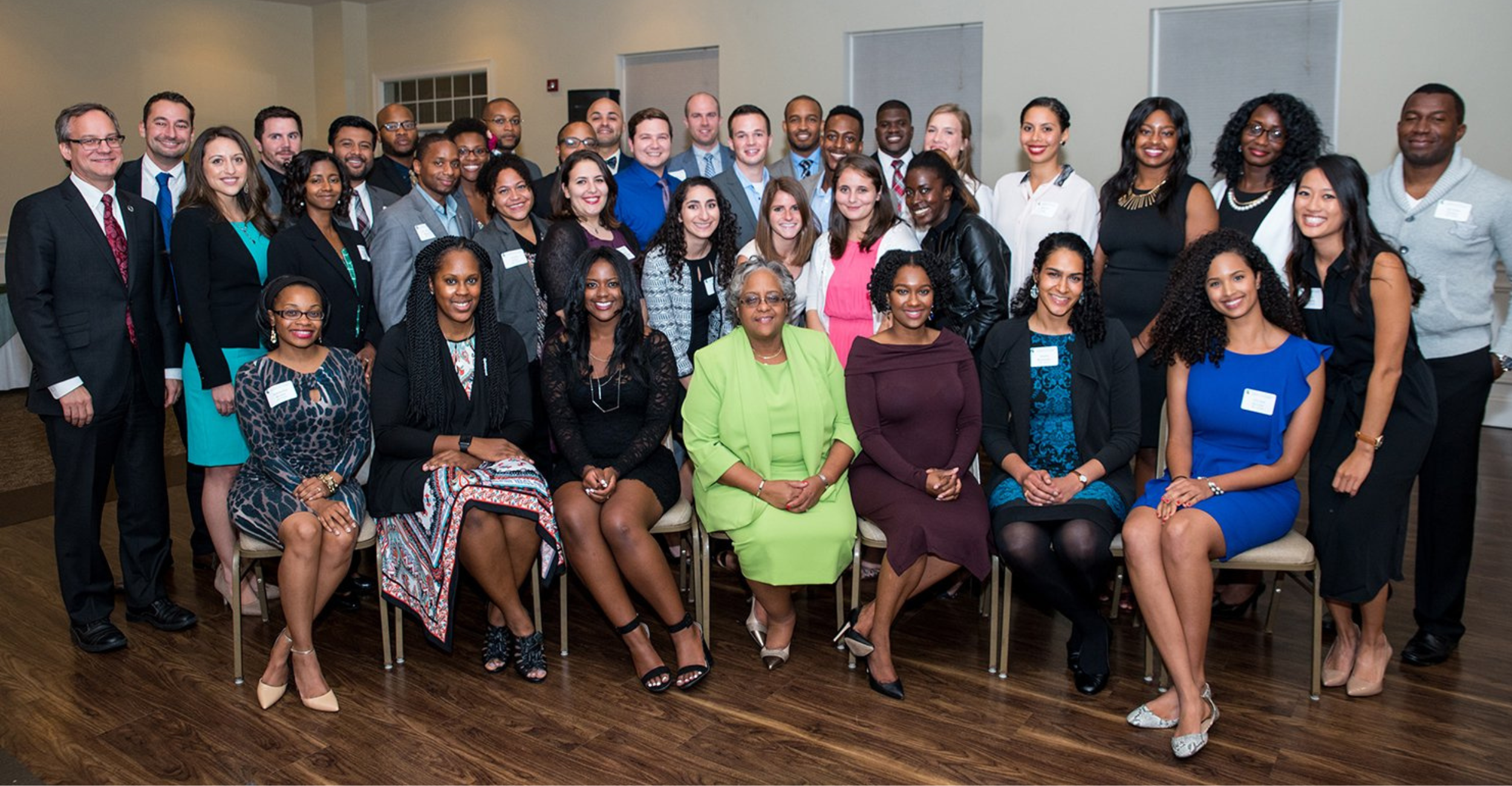
A 30-year ABLE Program alumni celebration was held in 2016, and will celebrate 40 years by gathering in 2026. The ABLE Program has been made possible through the dedication of college staff and Dr. Wanda Lipscomb's inspiring leadership.
Building on existing talent
Future Spartan MDs from the 2020-2021 ABLE cohort—Aghdas Movassaghi, Carolyn Zichichi and Keilah Dos Santos—all had to overcome incredible adversity in their journeys to medical school. For example, both Movassaghi and Dos Santos are first-generation college students from underrepresented communities; Zichichi was diagnosed with breast cancer prior to taking the MCAT.
All three say that ABLE gave them the skills and tools to matriculate and be successful in medical school. Dos Santos’ biggest takeaway? Learning to be more effective by utilizing study strategies.
“I really learned how to approach science courses, so I retain information better,” said Dos Santos. “In the end I gained a huge increase in confidence, and I’m grateful that ABLE gave me the opportunity I needed to pursue my dream of becoming a doctor.”
Hundreds of students—and alumni who continue to distinguish themselves—across nearly four decades have benefitted from and been set up for success by gaining skills and receiving support within the ABLE Program.
Written by Sarah Enlow

